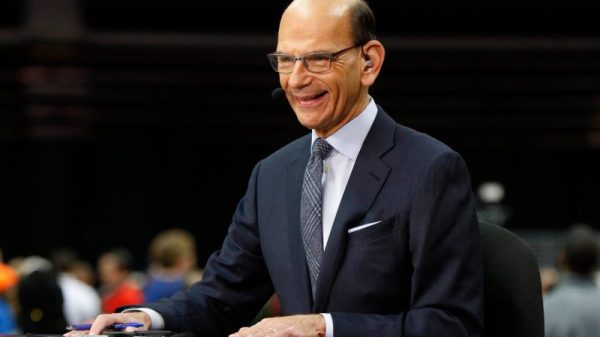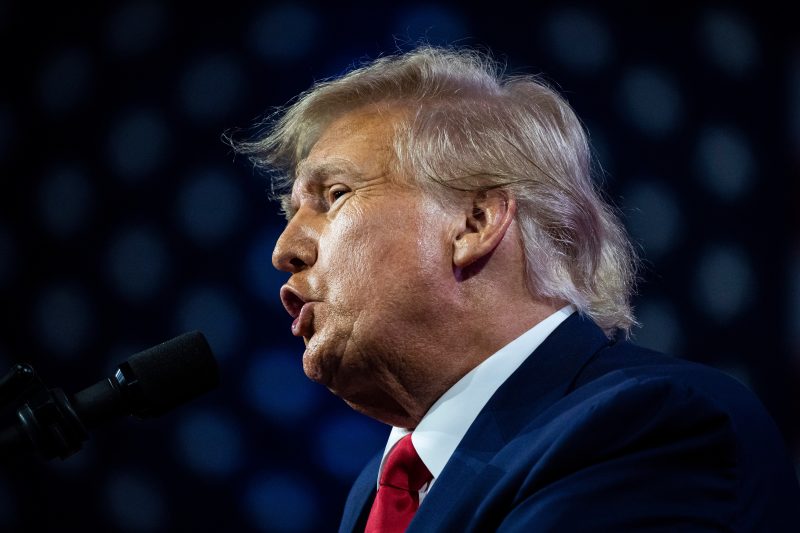It has loomed over the GOP’s posture toward Donald Trump basically from the moment he entered politics: the threat of Trump going the third-party route if he doesn’t win its 2024 nomination — and spoiling the party’s chances.
Sen. Lindsey O. Graham (R-S.C.) effectively acknowledged that it’s a significant reason he says the party needs to stand by Trump. And the Republican National Committee is seeking to pin Trump down by forcing candidates to sign a party-loyalty pledge to participate in 2024 debates.
What if the GOP needn’t worry quite so much?
That’s what a new study suggests. But there are some significant caveats to that.
The study in the Harvard Journal of Law & Public Policy aims to be the most authoritative review to date of “sore loser” laws. Such laws either explicitly or effectively prevent a candidate from running as an independent or third-party candidate if they’ve previously run in the same race under a different banner. (Think: Joe Lieberman running for reelection to the Senate as an independent in 2006 after losing the Democratic primary.)
The study’s conclusion: It would be “effectively impossible” for Trump to win as a third-party or independent candidate, because he would fail to make the ballot in as many as a majority of states.
“Such a candidate would be denied ballot access in 28 states totaling 290 electoral votes if sore-loser laws are applied as written,” the study says. It notes those 290 electoral votes are a majority of electoral votes on offer, and a candidate needs a majority to win.
But the degree to which this stands in Trump’s way is a matter of significant and interesting debate. And it’s worth emphasizing that Trump actually winning isn’t the GOP’s fear so much as his deliberately submarining their chances by running a campaign focused on retribution.
Longtime third-party ballot-access expert and advocate Richard Winger has in the past argued that only two states have sore-loser laws that explicitly and definitely apply to presidential candidates: South Dakota and Texas. Most of the others with potentially applicable laws, he has noted, have allowed failed major-party candidates to appear elsewhere on the general election ballot.
Bloomberg News, meanwhile, ran a story Monday with a similar thrust as the Harvard study. It also found that a third-party Trump effectively couldn’t win, but it focused narrowly on six states where he would be prevented from making the ballot: Alabama, Arkansas, Michigan, Ohio, Pennsylvania and Texas.
What the Harvard study seeks to add to the debate is laws that would appear, on paper at least, to prevent Trump from running third-party. That’s even if they are not explicitly sore-loser laws, and even if they haven’t been applied to presidential candidates in the past.
Winger’s “analysis, while potentially helpful for historical, precedential, and public opinion purposes, fails to account for political and legal realities,” the study says.
It adds that “a state’s past failure to enforce sore-loser restrictions against presidential candidates is not a reliable guide to future enforcement.”
These realities include filing deadlines that would be very difficult or impossible to meet if Trump spends significant time in the GOP nominating contest. They also include “disaffiliation requirements” that prohibit candidates from running under one banner if they’ve recently been affiliated with another.
(For instance, Montana states that a “person seeking office as an independent candidate may not be associated with a political party for 1 year prior to the submission of the person’s nomination petition.”)
Some of these are arguable. It’s possible certain laws’ applicability to presidential elections could be challenged. A handful of states hold caucuses, which might lead to different interpretations than primaries.
And while discussing filing-deadline problems, the study focuses on Kansas, which requires independent candidates to file for the general election the Monday before the state’s primary. But if the state follows through on scheduling a May primary, that would seemingly leave time for someone like Trump to drop out after other states’ contests but before Kansas’s and still run as an independent there.
All of that aside, though, it’s pretty evident there would be basically no path to victory regardless of how stringent these laws turned out to be.
The six states highlighted by Bloomberg include two big swing states and four red states totaling nearly one-fifth of all electoral votes. And even if it were truly just South Dakota and Texas, that would still be 43 electoral votes out of Trump’s column. No Republican since 1988 has received enough electoral college votes to win without those two states.
And that would be even if Trump somehow managed to win every other red state, which is less likely today than it ever might have been. Republicans have drifted toward saying they are party-first rather than Trump-first, and a recent Republican poll for the Bulwark found only 28 percent of Republicans would vote for a third-party Trump over Florida Gov. Ron DeSantis as the GOP nominee.
In other words, without DeSantis or whoever else absolutely imploding as the nominee, and without significant crossover appeal — which isn’t exactly Trump’s forte — the path is effectively nil.
All of that certainly matters. Trump launching a quixotic third-party bid is one thing; going through all that trouble with no prospects of victory and with this much legal wrangling ahead is quite another. Trump would risk being remembered not just as the guy who spoiled 2024 for Republicans, but who did so deliberately.
But the GOP remains in a pickle. Even if the party believes Trump probably would never do it, who knows what he’s capable of in the service of making a point — especially if he feels wronged by the process? Trump has transparently held this threat out there, both in 2016 and after the Jan. 6 Capitol attack, in a way that suggests even shy of a third-party bid, he could do other things to push his supporters away from the GOP.
All of which makes its handling of the situation matter. Its opening bid is the primary-debate pledge.



























